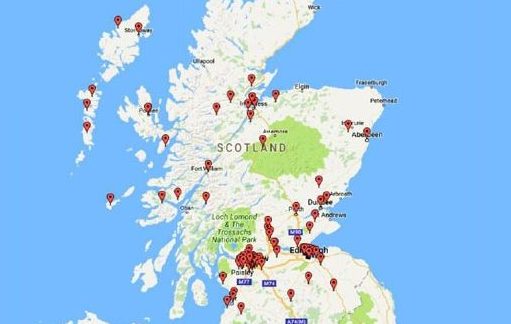A new census of traditional music in Scotland shows it is thriving through the support of communities, despite a lack of grant funding.
The census, carried out by the Traditional Music Forum (TMF) explored the learning of traditional music in community settings across Scotland. It found that between the 64 organisations taking part in the census, 23,198 people were involved in learning traditional music with 17,240 of these under the age 18. This is equivalent to over 30 secondary schools.
But few of the organisations were in receipt of grant funding to help them deliver this work. Only six received funding from Creative Scotland and only nine had any funding from their local authority.
As a result, communities were reliant on the passion and enthusiasm of volunteers to deliver traditional music learning. The census found there were 2,140 volunteers in the organisations surveyed, involved in everything from the delivery of tutoring through to fundraising and governance. It meant the cost of delivering learning was only £60 per person, with the funding gap filled through tuition fees, performances, dances, merchandise, busking, tune book sales, gift aid and sponsorship.
Over 27 instruments are currently being taught, and not just the traditional fiddles and accordions. Clarsach, flute, mandolin, percussion are also popular and are being taught one-on-one, in groups, and through informal sessions.
Explaining the motivation for the census, Ellie Logan, Membership Officer for TMF, said, ‘We wanted to get an idea of what was happening and where, what is on offer and who is involved to get insights into gaps, challenges and costs. What it showed was a vibrant picture of traditional music being taught and played in community settings across Scotland.’
She continued, ‘Being a community based activity dependent on volunteers, there is an inherent fragility due to difficulties in finding permanent accommodation for classes, finding tutors, maintaining a supply of volunteers to run everything and, not surprisingly, raising funding.’
The report also highlighted other ways of supporting traditional practice such as making venues and practice spaces available.
Blackford Fiddle Group, based near Perth, were one such group who could benefit from this. Andrew Bachell of the group said, ‘We are a self-funded volunteer led group and raise funds to support our work. Like many groups in rural areas our challenge is finding premises. Recently our village hall was shut for 8 months but we kept going wherever we could as it is so important for all of us. We have players from 7 years old to those in their seventies all learning alongside each other.’
A full copy of the TMF report can be found here
